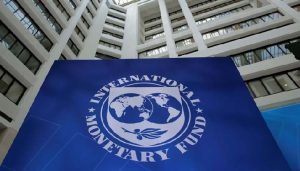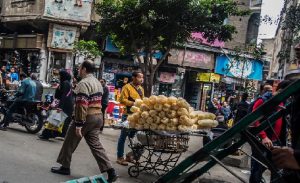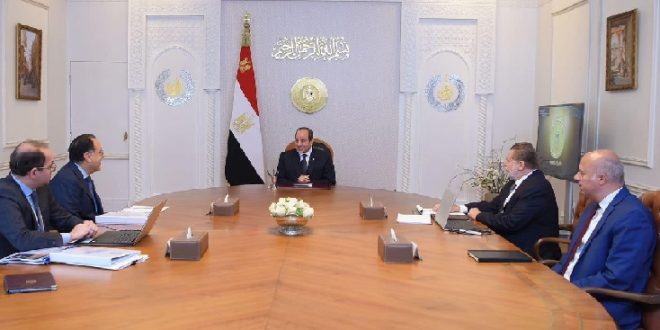07-01-2025
CAIRO: Egypt is expected to receive a $1.2 billion disbursement from the International Monetary Fund this month as part of an $8 billion program with the international lender, Finance Minister Ahmed Kouchouk said on Sunday.
Last month, the IMF said it reached a staff-level agreement with Egypt on the fourth review of the 46-month Extended Fund Facility arrangement, potentially unlocking the $1.2 billion disbursement.
 “The (IMF’s executive) board will convene in January and, God willing, we will receive the amount in January,” Kouchouk told ON TV in an interview, adding Egypt had not requested an increase to the $8 billion loan.
“The (IMF’s executive) board will convene in January and, God willing, we will receive the amount in January,” Kouchouk told ON TV in an interview, adding Egypt had not requested an increase to the $8 billion loan.
Egypt, grappling with high inflation and shortages of foreign currency, agreed to the expanded IMF program in March. A sharp decline in Suez Canal revenue caused by regional tensions over the last year compounded its economic woes.
Kouchouk also said Egypt is targeting about $3 billion in the remainder of the current fiscal year, which runs until the end of June, through “diverse issuances” to investors, without elaborating further. His comments came in response to a question about whether Egypt plans to offer new bonds to foreign investors this year.
Meanwhile, The International Monetary Fund said on Wednesday it reached a staff-level agreement with Egypt on the fourth review under its Extended Fund Facility arrangement, potentially unlocking a $1.2 billion disbursement under the program.
Egypt, grappling with high inflation and shortages of foreign currency, agreed to the $8 billion, 46-month facility in March. A sharp decline in Suez Canal revenue caused by regional tensions over the last year compounded its economic woes.
The IMF said Egypt’s government had agreed to increase its tax-to-revenue ratio by 2% of gross domestic product over the next two years, with a focus on eliminating exemptions rather than increasing taxes.
 This would give it space to increase social spending to help vulnerable groups, the IMF said in a statement. “While the authorities’ plans to streamline and simplify the tax system are commendable, further reforms will be needed to enhance domestic revenue mobilization efforts,” the statement said.
This would give it space to increase social spending to help vulnerable groups, the IMF said in a statement. “While the authorities’ plans to streamline and simplify the tax system are commendable, further reforms will be needed to enhance domestic revenue mobilization efforts,” the statement said.
Egypt had agreed to make more decisive efforts to ensure the private sector became the main engine of growth and to sustain its commitment to a flexible exchange rate, the IMF statement added.
The staff-level agreement of the fourth review must still be approved by the IMF’s executive board.
However, “The economy has fared well in the face of elevated geopolitical risks, (but)… it is still in recovery mode and still navigating challenges,” this is how Ramona Moubarak, head of Middle East and North Africa (MENA) country risk at US analysts Fitch Solutions, summed up the state of the Egyptian economy over the past year. Almost 12 months ago, a dollar crunch carried over from last year was strangling the economy, a parallel exchange-rate market was flourishing with rates more than double the official rate, and many vital goods, including medicines, were in short supply because the lack of dollars was affecting imports.
Suddenly, in February a major development deal, the Ras Al-Hekma project, was concluded, giving the economy the relief it needed.
ADQ, the Abu Dhabi-based development and holding company agreed to a $35 billion joint venture with the government to develop 170 million square metres of prime coastal land. As part of the deal, ADQ converted $11 billion of hard currency deposited by the UAE with the Central Bank of Egypt (CBE) into Egyptian pounds to be used for investment projects across the country, thus relieving the CBE of having to repay that sum. (Int’l News Desk)
 Pressmediaofindia
Pressmediaofindia




